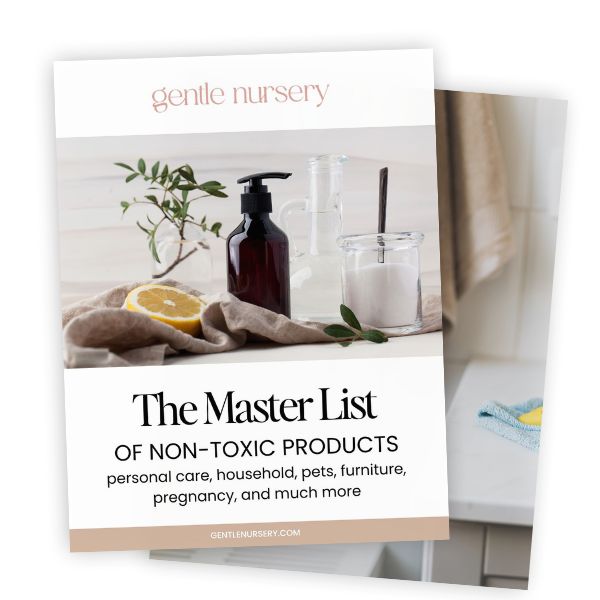If you’re interested in clean eating and farm-to-table production, learning about biodynamic farming should be a priority.
If you’ve ever seen a “biodynamic certification” on your produce, I’m sure you’re curious what it means. While it may seem like a new trend, it’s actually a farming method that dates back a hundred years! These farming practices are making a huge comeback. Many companies use biodynamic farming to give customers complete satisfaction. Customers can be sure that what they are purchasing is good for both human health and our environment.
What is Biodynamic Farming?
The term “biodynamic farming” began with a scientist named Dr. Rudolf Steiner. He wanted to harmonize all facets of farming and unite them as one working entity—from the sun to the soil. Ultimately, this method allows a farm to produce nutrient-dense food, optimal for human nutrition.
Historically, the biodynamic farming revolution began in the 1920s in France. During this time, many French farmers suffered rapid declines in their crops’ vitality, seed fertility issues, and animal health problems. In response to the farming crisis, Steiner delivered an educational lecture series based on a few of his core beliefs:
- A farm is a living organism.
- It can be self-sustaining.
- It’s responsible for maintaining its own health and vitality.
Nowadays, biodynamics is alive and well in the world. Many people use these methods in gardens, farms, vineyards, ranches, and orchards around the globe. You can actually use these principles in your own garden, too!
Related: 17 Ways to Use Less Plastic
How Does Biodynamic Farming Work?
What I love about biodynamic farming is that it doesn’t use any chemicals or extra materials. The farm uses its own biodiversity to support itself from the ground up, eliminating as much waste as possible. For example, a practicing biodynamic farm would use the waste from one area of the farm to help fertilize another. So, animal waste can turn into compost and be spread over fields to sow seeds. Pigs are fed leftover vegetable scraps and extra milk from the cows. A biodynamic farm doesn’t have any waste! It’s pretty impressive.
Another benefit of biodynamic farming is that the animals are very well cared for. In fact, the animals spend as much time in nature as possible. These farmers respect their animals and habitat.
Beyond this, there are a few main features of what you will find on a biodynamic farm.
Biological Diversity
For a farm to receive a biodynamic farm certification, it must be dedicated to preserving local wildlife. Ten percent of its land must be reserved for local wildlife.
Fertility
One of the marks of a successful biodynamic farm is its fertility. In fact, farms use 100% organic methods to boost and maintain fertility such as:
- Green manure
- Cover crops
- Catch crops
- Crop rotation
- Rotational grazing
Organic Pest and Weed Control
No farm can ever be free of pests, diseases, and weeds, but a biodynamic farm never uses pesticides or chemical sprays to take care of these problems. Instead, farmers use alternative practices. For example, they might use plant diversity, crop rotation, mulching, or grazing to manage these issues.
Water Conservation
Biodynamic farms work towards proper water conservation by using irrigation and a range of other practices. For example, they might use solar or windpumps. Additionally, growers monitor soil moisture and avoid overwatering their crops.
Livestock Integration
Industrial farms separate all livestock into separate feedlots, but you won’t find that on a biodynamic farm. Because everything works together as a team, growers mix livestock populations. It helps the farm stay self-sufficient.
Related: 30+ Easy and Healthy Freezer Meals to Make Before Your Due Date
What is a Biodynamic Farming Certification?
Demeter USA is one of the branches of the Demeter International organization, which started in the 1920s. Named after the Greek goddess of agriculture, the company is active in over 50 countries worldwide. In fact, Demeter is the oldest ecological certification organization in the world. It’s also the only biodynamic certifying body in the United States.
When you see items that carry the Demeter logo, it guarantees that they use biodynamic farming methods. It takes a lot for farmers to receive this certification. Often, it requires years of planning and practice to develop a system that works for their crops.
This certification is really only for farmers who want to create the safest products for their customers. While there are many rules and regulations to receive the biodynamic certification, here are some of the general steps.
1. The Certification Packet
First, a farmer must submit a whole lot of information! The “certification pack” requires a lot of information. Demeter wants to see a very detailed application. This includes the farm’s entire management history, their goals, future visions, and how they plan to manage their farm.
2. A Farm Visit
After Demeter receives and reviews the certification pack, an inspector visits the farm. This visit must take place during the active growing season.
During his visit, the inspector takes a detailed tour of the farm, evaluates the land, and studies the animals. Then, he will then discuss the current methods used on the farm and make recommendations for improvements.
3. The Evaluation Circle
After the farm inspection, all farm information goes to the “Evaluation Circle.” Also known as the board of directors, the evaluation circle will study the assessment and provide a final decision.
If they decide to grant the farm certification, the board provides their official signature. The board may also include a few suggestions for growers to implement in the coming year.
4. Annual Renewal
The biodynamic certification NOT a one-and-done process. If a grower makes modifications that don’t fit the standards of biodynamic farming, their certificate can be revoked. This annual renewal includes updated farming reports and full on-site farming evaluations.
Related: How to Reduce Your Baby’s Exposure to Glyphosate and Other Pesticides
What Does This Mean for You?
Purchasing products with a biodynamic certification means that you’re purchasing from a farmer devoted to leading a sustainable agricultural ecosystem. That’s an admirable goal, and it leads to a healthier world for us.
You’re also buying premium, nutrient-dense food grown to the highest standards. Supporting these companies (like White Leaf Provisions) gives your family the best products while also showing others that these changes are necessary in our world.
FAQs
More questions about biodynamic farming? Read on!
What are the biodynamic farming standards?
At Demeter, there are sixteen categories of comprehensive standards. These rules ensure a level of accountability and authenticity from the farm to the final product. You can read about the specific standards on the Demeter website. Here is a look at the general guidelines:
- All ingredients must be sourced from a certified farm.
- Any preliminary processing of products must be inspected.
- Biodynamic-certified products must contain 90% Demeter certified ingredients. In products that contain at least 70% Demeter biodynamic certified ingredients, the individual ingredients can be labeled as certified.
- If a farm produces both biodynamic certified products and non-certified, the products must be kept separate.
- If there is a contamination risk, products must be tested for residue.
- All flavorings must be certified as Demeter biodynamic or organic.
- All cleaning procedures and disinfectant products must meet government standards and the Demeter Association standards.
- To control pests and inspects, farmers must use mechanical means, freezing, or non-toxic materials.
- All packaging must be free of preservatives, insecticides, and fungicides.
- Certified products cannot derive from genetically engineered sources.
- Water must meet Federal Safe Drinking Water standards.
- Transportation for products must be clean. Transportation cannot transport other products that may contaminate certified products.
How popular is biodynamic farming?
There is definitely a growing interest in this farming practice. Demeter says that they have an annual average growth of 15%. Good news for customers!
How do I know if a product is biodynamic certified?
A product will be labeled with a Demeter logo if a product is certified. You may also see that the whole product might not be certified, but the ingredients within the product are. That will be specified within the list of ingredients. Also note: while a farm can be certified as a biodynamic facility, it may not produce all biodynamic certified products.
What’s the difference between organic farming and biodynamic farming?
Farms that produce organic products do not use specific synthetic pesticides, fertilizers, GMOs, antibiotics, or growth hormones. Biodynamic farming goes to the next level. They use a whole different farming method to the farm that includes the soil, plants, and animals. Biodynamic farming produces all organic products.
Is biodynamic certified food better than organic produce?
Well, this depends on your preferences. Certainly, organic is better than conventional. Organic produce is perfectly safe and healthy. Biodynamic produce has additional standards and all of their regulations are very strict. You will definitely be getting premium products if they are biodynamic certified. According to Demeter, studies have compared biodynamic farming methods to organic methods. Studies suggest that Biodynamic farms have superior soil quality, stronger crop vitality, and complete elimination of fertilizers and pesticides.
Have you purchased biodynamic certified foods? I’d love to hear!
B










Leave a Reply